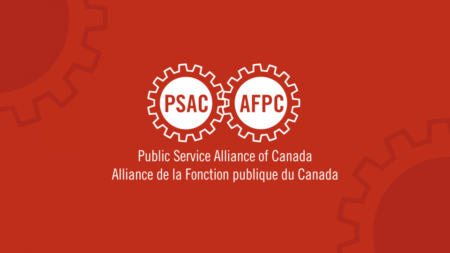Over the last few days, we have heard from several members regarding the federal government’s mandatory vaccination policy for federal public service workers. Due to its scope, this policy has understandably generated a fair number of questions and concerns.
As we continue to work closely with PSAC to support our membership, CIU has prepared the following documentation to address lingering questions. From a labour relations perspective, it should be noted that certain aspects of the policy have possible ramifications that bring both the union and the employer into uncharted waters. In addition to resources already available from both CIU and PSAC, we hope that the following guidance, based on current legal expertise, will help you navigate the next steps.
The health and safety of our members has always been of the utmost importance to CIU, and never has this been more true than during this pandemic. We understand that this new policy from the employer can be a source of stress for some and, in addition to the guidance provided here, we encourage you to speak with your medical professional to help you make an informed decision regarding vaccination.
Should your question not be addressed below, or should you have further concerns, please contact your Branch President or keep an eye on the national CIU website for updates.
FAQ: Mandatory vaccination policy
for federal employees
Does CIU support the employer’s mandatory vaccination policy?
As previously stated, CIU supports vaccination efforts as a response to the COVID-19 pandemic. With other preventative measures, having as many Canadians as possible fully vaccinated remains the best way to combat the ongoing pandemic.
Further reading about the importance of COVID-19 vaccines:
- How We Know That the COVID-19 Vaccines Work
- COVID-19 Vaccine Hesitancy: 12 Things You Need to Know
- Vaccines for COVID-19
- Le vaccin expliqué [in French]
We do take issue with the unilateral imposition of this policy without meaningful consultation with the unions to pre-emptively address concerns. It is especially concerning to us that the employer would immediately resort to placing non-compliant employees on administrative leave without pay (LWOP) without looking into other methods of accommodation, where possible.
Do I have to be vaccinated if I am working from home?
The employer has made it clear that the policy applies to all employees in the core public service, including those working remotely. However, as the policy concerns health and safety in the workplace, it is unclear — at this time — why the obligation to be fully vaccinated should extend to employees who are not in the workplace, such as those working from home. Nevertheless, the employer’s expectation is clear, and employees who do not meet the policy’s requirements face being placed on administrative leave without pay.
Can I grieve if I am placed on leave without pay because I am unwilling to be vaccinated or refuse to complete the attestation form?
Yes. Members have the right to grieve and, should they be placed on administrative leave without pay (LWOP) under the policy, we will support them to the best of our abilities. As with any grievance, each case that is brought forward will be thoroughly assessed based on individual circumstances and merit.
Members who wish to grieve in this context should only do so after being placed on LWOP as per the policy. Members who are in this situation should contact their Branch President. It bears mentioning that the redress process is generally lengthy, and that a swift resolution to a grievance is unlikely.
Can I file a Human Rights complaint?
Members can always choose to file a human rights complaint and should contact the Canadian Human Rights Commission (CHRC) to do so. While CIU cannot file Human Rights complaints on behalf of members, we can provide information on how to do so, and we invite members to contact CIU’s Human Rights representative, Murray Star, for more information on the matter.
Based on existing information, however, it appears unlikely in our opinion that the CHRC will rule favourably on the issue — except for cases involving religious or medical exemptions. The Ontario Human Rights Commission has already stated that the decision not to be vaccinated constitutes an individual decision/belief and, as such, does not fall under the prohibited grounds of discrimination as defined in the Canadian Human Rights Act.
Where members have an exemption on medical or religious grounds and the employer fails to provide a suitable accommodation, we encourage them to file both a grievance and a human rights complaint. For more information on how to request an accommodation, please see the following post.
Will CIU file a policy grievance?
As the government’s mandatory vaccination policy applies across the federal public service, policy grievances lie within the purview of PSAC who, as the bargaining agent, will decide whether or not to contest the policy as a whole. We will be sure to inform the membership should this happen.
Is this a breach of my privacy rights? Can I file a complaint?
All employees have a right to file a complaint with the Office of the Privacy Commissioner if they believe that their personal information is not being handled properly. Members who wish to file a privacy complaint can do so through the Office of the Privacy Commissioner of Canada.
Note that while CIU does not normally represent members on individual privacy complaints, we can provide information on how to file one, should the information provided by the Office of the Privacy Commissioner be insufficient. It is also possible for the bargaining agent — PSAC — to file a complaint with the Privacy Commissioner, and we will be sure to keep members informed of any development in that regard.




